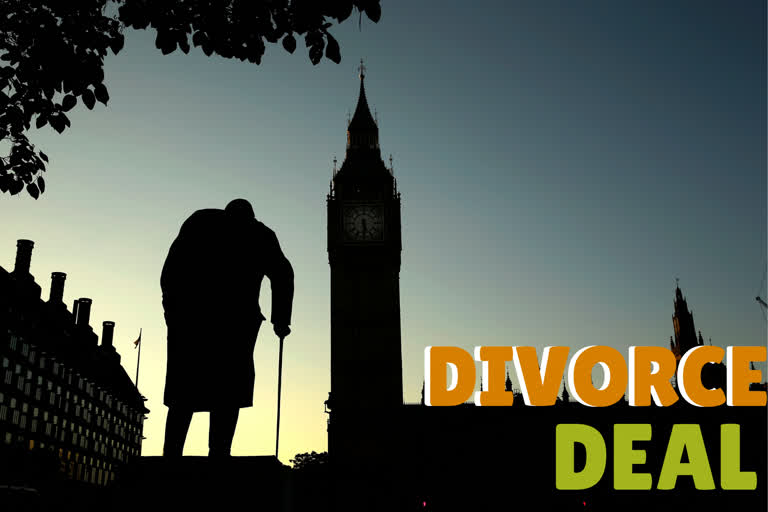London: Britain officially leaves the European Union on January 31 after a debilitating political period that has bitterly divided the nation since the 2016 Brexit referendum.
Difficult negotiations setting out the new relationship between Britain and its European neighbors will continue throughout 2020. This series of stories chronicles Britain’s tortured relationship with Europe from the post-World War II years to the present.
Europe has been a source of contention in Britain seemingly forever. That may be why no consensus has really ever existed over the benefits of being a member of the European Union and why the country has been so divided in the run-up to Brexit day.
Though there may be no bigger lovers of the horrors of Scandi-noir or the beaches of Greece than the British, feelings for the EU have been far more lukewarm during the country's 47 years of membership. One of the ironies of Brexit is that Britain arguably now has some of the most passionate pro-EU supporters anywhere in the bloc.
Many reasons have been cited for the complex relationship. Maybe, an imperial past has cast a cloud over Britain’s membership. Maybe it’s just to do with the fact there is a strip of water separating the country from what is often referred to as "the continent". Britain has always been wary of the shifting alliances that have played out in Europe since the Norman conquest of 1066.
Whatever the primary motivation behind the Brexit vote in 2016, Britain has always perceived itself as a land apart.
Ironically, it was Winston Churchill who called for a “kind of United States of Europe” in the grim aftermath of World War II.
In a speech in Zurich in 1946, a year after the end of the war and after he had been resoundingly ousted as British prime minister in a general election, Churchill outlined his vision for post-war Europe.
Peace and prosperity, he said, could only come if France and Germany put aside their centuries of mistrust and start operating as partners.
Read also: UK lawmakers OK Johnson's Brexit bill, pave way to exit EU
“The structure of the United States of Europe, if well and truly built, will be such as to make the material strength of a single state less important,” he said. “Small nations will count as much as large ones and gain their honour by their contribution to the common cause.”
Churchill didn't envision Britain being part of this grand endeavour. Its role, like that of the “mighty America” and even of Soviet Russia, would be to act as “friends and sponsors of the new Europe.”
That perception about Britain’s role provides one explanation to its ambiguous relationship with Europe in the decades since. It joined the club late, 16 years after the rules had been written. While a member, it often grumbled about many of the integration suggestions that came up. Words like “awkward" or “semi-detached" weren't uncommon descriptions of Britain's membership.
It all, perhaps inevitably, culminated in that vote in June 2016, albeit a narrow 52%-48% majority in favour of leaving the club.
Perhaps Brexit was inevitable, after all.
Read also: Brexit deal is still terrible for Britain: Corbyn



